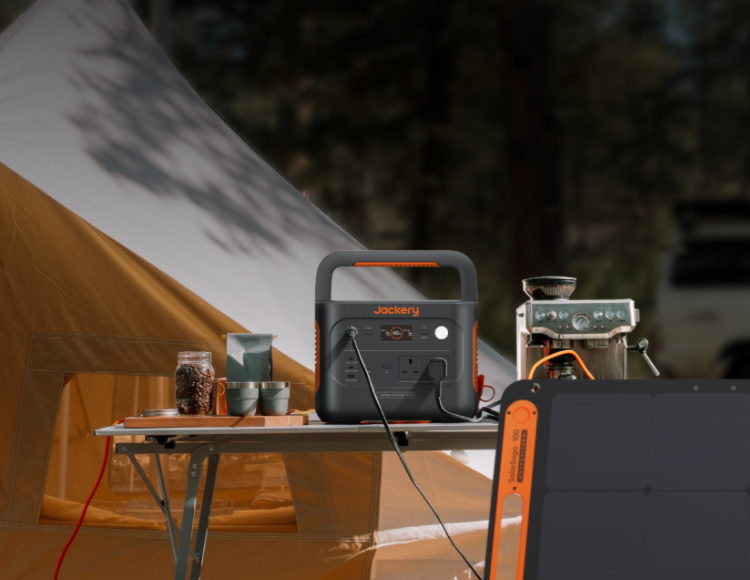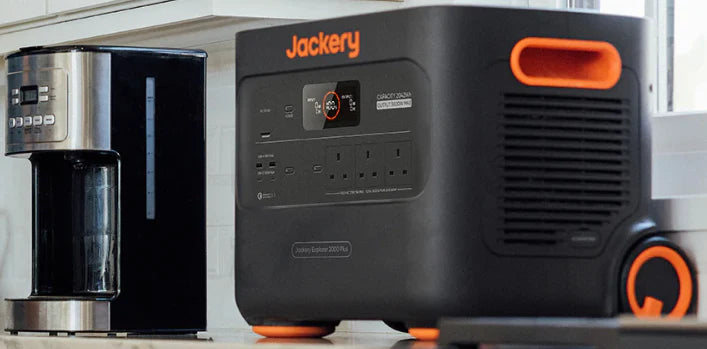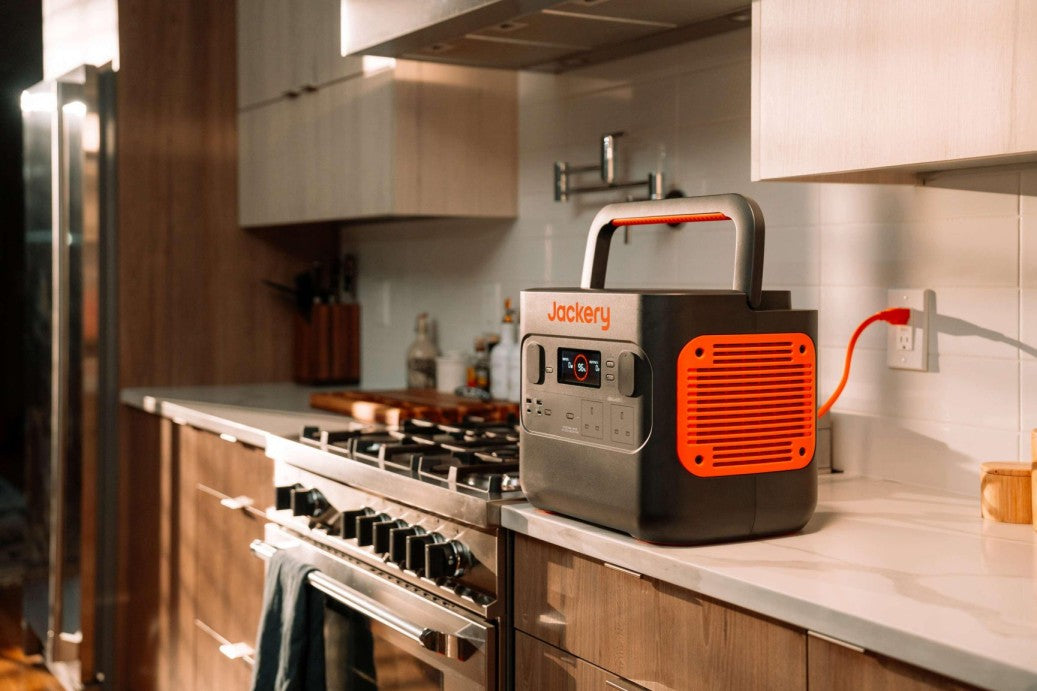Creating something extraordinary from ordinary pieces of wood is a challenging but meaningful activity. Woodworking has always remained a vibrant part of the UK’s culture. Woodworking is appreciated as a hobby, DIY project, and business throughout the country.
Woodworking techniques have evolved over time, and traditional techniques are now combined with modern electric tools for greater precision and efficiency. For beginners, mastering the basics of woodworking tools is the key to completing their projects smoothly and with minimum errors.
Our today’s guide is for beginners to help them understand the fundamentals and essential woodworking tools, along with the reliable power generators and best places to practice woodworking in the UK.
What is Woodworking?
Woodworking is the art of crafting and fixing useful or decorative items, including structures, furniture pieces, storage solutions, wall art, and much more. It involves cutting, assembling, and shaping wood into something useful or meaningful.
Some of its types are carpentry, joinery, and cabinet making, each requiring different woodworking tools, skills, and techniques.
To master woodworking, you must have a solid understanding of materials, tools, and techniques. It is advised to start with basic projects to develop an understanding and later polish your skills through work experience and practice.
Woodworking is a rewarding journey that ends with a finished product reflecting your skills and expertise.
What are the Woodworking Tools?
The key to woodworking is having the appropriate equipment for your project. It is crucial for novices to comprehend the three basic kinds of woodworking tools: measuring, electric, and hand tools.
Let’s understand the use of these different types of woodworking tools as you begin your woodworking journey:
1. Hand Tools
- Saw:
Also known as a panel saw, it is used to cut wood into different shapes and sizes. Different types of saws serve different functions.
For instance, hand saws are used for general cutting, circular saws for quick cuts, coping for intricate designs, and table saws are the best for cutting plywood and MDF.
The teeth of the handsaw determine its efficiency. The more Teeth Per Inch (TPI), the better the cut. Saws with lower TPI are used for quick jobs where preciseness is not important.
- Planer:
It gives the wood a smooth, flat finish on small surfaces. The planner removes the excess material and makes the surface super clean, which is essential for assembling a project.
- Chisel:
It comes with a sharp edge that is used to cut and design wood intricately. A chisel allows you to work on details, cut mortises, and trim dowels.
They are available at hardware stores in various sizes at an inexpensive rate. They are best for beginners, but always remember that it is safe to chisel the surface away from yourself.
- Hammer:
A standard hammer is an all-rounder for driving and removing nails, fitting parts together, and shaping wood. Different types of hammers, such as claw hammers and mallets, are used for various tasks.
You can use a rubber mallet on finished wooden surfaces for adjusting and putting pieces together. On the other hand, a drill hammer works best for making screw holes. However, you must purchase quality hammers and hold them with a straight wrist to avoid getting hurt while hammering.
- Drill:
A hand drill, paired with different bits, allows you to make precise holes for screws or dowels, which are essential in joining wood pieces together.
- File:
A file is used to smooth rough edges or shape wood, perfect for detailed finishing work. It allows for precision and refinement after the initial cutting or chiselling.
2. Electric Tools
- Electric Chainsaw:
If you are planning to work on large projects and have large pieces of wood to cut, it is best to invest in an electric chainsaw. These handheld power saws with sharp teeth are used to cut and trim trees and firewood.
This powerful equipment demands careful handling but can perform the job fast and precisely. You also have the option of a battery-powered chainsaw, which is great for working in areas without electricity.
- Electric Sander:
Electric sanders give smooth finishes for preparing surfaces for painting, staining, or other finishing purposes. They remove roughness and allow you to create a clean texture for your project. Orbital sanders move in circular motion and are best for fine sanding, whereas belt sanders are used to strip paint and sand rough surfaces.
- Electric Engraving Machine:
For adding intricate designs and personalised touches, an engraving machine allows you to carve details into your work with precision. It is used to make delicate designs and patterns on wood. You can carve details into wood with high accuracy, adding custom, creative designs and decorative elements.
Rotary engravers are best for deep, aggressive carvings, while laser ones work to burn designs into the wood surface.
- Electric Polishing Machine:
This machine gives a final, smooth, glossy touch to your project. After sanding and finishing, the polishing machine enhances the wood's appearance by removing any remaining imperfections and bringing out the beauty of the wood grain.
You can go for rotary polishers for adding polish to wood, while a dual-action polisher that combines rotation and oscillation is best for delicate surfaces.
3. Measuring Tools
- Tape Measure:
It is one of the most basic woodworking tools, ensuring that all your measurements are accurate and all your pieces are assembled with the correct dimensions. Always have a tape measure at hand to avoid later regrets and costly repetitive work.
- Calliper:
When you need to measure thickness and depth precisely, a calliper is a perfect tool. It ensures detailed components fit perfectly, allowing for fine woodworking. Using digital callipers means more precision and measurements down to hundredths of a millimetre.
- Angle Ruler:
When constructing frames or joints, an angle ruler helps you make accurate cuts at specific angles. This tool is essential for ensuring the correct geometry in your projects. A lot of rulers are now adjustable, which makes measuring different angles easy.
- Level Ruler:
It is crucial to ensure that your work is perfectly level, particularly for furniture and larger structures. A level ruler guarantees that your project is balanced and aligned. It is usually used for large furniture and shelves.
Overall, learning how to use each of these woodworking tools effectively will enable you to tackle a variety of jobs with accuracy and confidence. Each tool has a different purpose in woodworking. Success in woodworking projects is only possible if you comprehend and use these tools correctly.
Techniques for Beginners in Woodworking
The best way to have a successful woodworking experience as a beginner is to focus on simple projects first and polish your skills before moving on to the bigger ones. To help you ace your initial projects, follow these simple tips:
1. Use Sharp Knives
Make sure you are using sharp woodworking tools. Dull tools can make your job difficult and put you in danger. Sharp tools help you cut surfaces with precision and make the entire experience smooth. They also reduce your effort and allow for clean, precise cuts.
2. Start with a Simple Project
Jumping into complex projects at the start can be an overwhelming experience that may lead to many troubles and waste. So, to avoid disappointments, start with simple tasks like mending broken items, building small shelves, boxes, etc. Once you get comfortable with the tools, you can move on to the more difficult and bigger tasks.
3. Practice Using Electric Tools
Electric woodworking tools make the job fast and convenient, but you need to practice using them first. Start with basic tools like an electric sander or a drill. This will help you get accustomed to the feel and operation of these machines.
4. Pay Attention to Personal Protection
Safety should always be the first priority while working with woodworking tools. You must always wear protective eyewear, gloves, and ear protection when working with power woodworking tools to avoid any mishaps.
Make sure the area around you is well-ventilated and well-lit, and never speed through jobs that demand your complete attention.
Where Can Beginners Practice Woodworking?
In the UK, there are many opportunities you can find to learn and practice woodworking. Below, we have listed down some places that allow you to develop your woodworking skills based on your resources and the nature of your projects:
1. Professional Woodworking Shop
If you do not have the space at home or access to tools, many professional woodworking shops offer the opportunity to rent workspace and equipment. These spaces are equipped with woodworking machinery, which allows you to practice using tools you may not yet own.
Additionally, many of these shops offer beginner workshops and classes, helping you learn from professionals in a structured environment.
2. Family Workspace
For those with limited space, setting up a small woodworking area in a spare room is ideal. Even a small space with hand tools and a workbench can be an excellent starting point.
3. Outdoor Space
Working outdoors surrounded by nature is always a refreshing experience. It gives you greater flexibility to tackle bigger tasks and reduces noise pollution.
Especially in the UK, most DIY enthusiasts prefer to work outdoors due to the weather. Working outdoors means you need a small electric generator to power your electric tools.
4. Open Areas Such As Garages
Garages are often the go-to space for woodworking. With the right tools and a portable power generator like the Jackery Solar Generator 2000 Plus, which can power even larger electric equipment, you can work on more advanced projects in a comfortable and safe space.

Best Portable Solar Generators for Outdoor Woodworking Practice
When practicing woodworking outdoors, a reliable power source is crucial for using electric tools like an electric chainsaw or sander. Here are two recommended solar generators from Jackery that are ideal for powering your tools in an outdoor setting.
1. Jackery Solar Generator 240 v2
If you are a beginner who works with limited electric tools but needs a reliable electric source to power your woodworking tools, the Jackery Solar Generator 240 v2 is a must-have. It has a more compact, portable design than products with the same capacity but supplies a sufficient amount of clean, renewable energy. The generator provides 256Wh capacity with 300W output.
This small power generator can power small tools like electric sanders or drills. Its portable size makes it a great option for setting up a temporary workspace in a garage or a garden. It’s also suitable for taking it to your workshops and friends' places to work collaboratively.
2. Jackery Solar Generator 2000 Plus
Jackery Solar Generator 2000 Plus is an ideal option for woodworkers who use advanced tools to cut, shape, design, and polish their projects. Due to its 2-12 kWh expandable capacity, the generator offers increased capacity and flexibility to conveniently operate larger equipment.
It can power devices up to 3000W. From an electric chainsaw to all sorts of woodworking machinery, this solar generator can support high-power tools and streamline your demanding tasks. Jackery Solar Generator 2000 Plus is best for situations where you do not have access to electricity, such as large garages or outdoor workshops.
Final Thoughts
Woodworking demands extreme attention to detail. Missing one detail can affect the outcome of the whole project. If you are a beginner who wants to create stunning pieces, it is crucial to understand how different woodworking tools work. These tools allow for quick, professional task completion.
Many prefer to enjoy the freedom and flexibility of working outdoors in open spaces. Thus, you need reliable portable solar generators from Jackery to power your woodworking tools even in areas without access to electricity.
With the right woodworking tools, dedication to improvement, and a reliable power generator, you can master the art of woodworking in the UK. Visit our website to get a suitable power source for your woodworking tools!


































































































